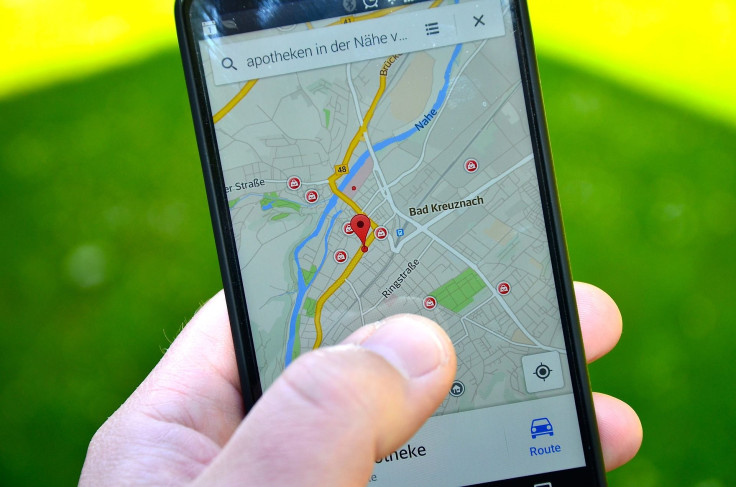Can Police Track Your Phone Without A Warrant? ACLU Warns Yes

Lawyers from the American Civil Liberties Union (ACLU) have filed their opening brief for a case set to be heard by the U.S. Supreme Court that could having sweeping implications for data privacy.
The ACLU is defending a Detroit area man who was convicted of six robberies after police gained access to location data about his phone without a warrant. In its opening brief, the ACLU warned such behavior could allow the government and law enforcement to effectively monitor citizens without cause.
Read: Can Police Track Your Phone Without Warrant? Supreme Court To Decide On Location Data
The ACLU’s client, Timothy Carpenter, was found guilty after the police obtained 127 days worth of cell-site data that included 12,898 location points—essentially pings sent from Carpenter’s phone to the tower to determine where he was located.
That information was acquired by law enforcement from the cell phone company without a warrant. The government holds such actions are lawful as cell-site data is considered a business record not a personal record.
In order to access cell-site data, the police got a “d-order,” which has less stringent requirements on what can be obtained than a warrant. A warrant requires a signed and sworn affidavit that describes locations that will be searched and what can be seized. The d-order doesn’t have such restrictions.
"If the Court were to accept this argument, the government could use this tool to monitor the minute-by-minute whereabouts of anyone—from ordinary citizens to prominent businesspersons to leaders of social movements," the ACLU’s lawyers wrote.
The ACLU holds that such orders give law enforcement too much leeway to pursue any information they want, especially from telecommunications and tech companies that maintain business records that may reveal personal information.
The case may present an uphill battle for the ACLU, as the Supreme Court has already held that there is no privacy interest in business records under the third-party doctrine, which holds that individuals who give up information to third parties have no expectation of privacy.
Justice Sonia Sotomayor did suggest in a 2012 decision that she believes the third-party doctrine is "ill-suited to the digital age, in which people reveal a great deal of information about themselves to third parties in the course of carrying out mundane tasks.” A 2014 Supreme Court case, Riley v. California, also produced a unanimous decision that found police could not search a person’s mobile phone during an arrest without a warrant.
While those shifts in recent years toward protecting the privacy of individuals and their data may provide a bit of hope for the ACLU, lower courts have not been as open to the idea. Last year, a U.S. appeals court used the third-party doctrine to rule police could obtain cell-site location information without a warrant. In that case, the police obtained 200 days worth of location data for two suspects.
Lawyers from the American Civil Liberties Union (ACLU) have filed their opening brief for a case set to be heard by the U.S. Supreme Court that could having sweeping implications for data privacy.
The ACLU is defending a Detroit area man who was convicted of six robberies after police gained access to location data about his phone without a warrant. In its opening brief, the ACLU warned such behavior could allow the government and law enforcement to effectively monitor citizens without cause.
Read: Can Police Track Your Phone Without Warrant? Supreme Court To Decide On Location Data
The ACLU’s client, Timothy Carpenter, was found guilty after the police obtained 127 days worth of cell-site data that included 12,898 location points—essentially pings sent from Carpenter’s phone to the tower to determine where he was located.
That information was acquired by law enforcement from the cell phone company without a warrant. The government holds such actions are lawful as cell-site data is considered a business record not a personal record.
In order to access cell-site data, the police got a “d-order,” which has less stringent requirements on what can be obtained than a warrant. A warrant requires a signed and sworn affidavit that describes locations that will be searched and what can be seized. The d-order doesn’t have such restrictions.
"If the Court were to accept this argument, the government could use this tool to monitor the minute-by-minute whereabouts of anyone—from ordinary citizens to prominent businesspersons to leaders of social movements," the ACLU’s lawyers wrote.
The ACLU holds that such orders give law enforcement too much leeway to pursue any information they want, especially from telecommunications and tech companies that maintain business records that may reveal personal information.
The case may present an uphill battle for the ACLU, as the Supreme Court has already held that there is no privacy interest in business records under the third-party doctrine, which holds that individuals who give up information to third parties have no expectation of privacy.
Justice Sonia Sotomayor did suggest in a 2012 decision that she believes the third-party doctrine is "ill-suited to the digital age, in which people reveal a great deal of information about themselves to third parties in the course of carrying out mundane tasks.” A 2014 Supreme Court case, Riley v. California, also produced a unanimous decision that found police could not search a person’s mobile phone during an arrest without a warrant.
While those shifts in recent years toward protecting the privacy of individuals and their data may provide a bit of hope for the ACLU, lower courts have not been as open to the idea. Last year, a U.S. appeals court used the third-party doctrine to rule police could obtain cell-site location information without a warrant. In that case, the police obtained 200 days worth of location data for two suspects.
© Copyright IBTimes 2025. All rights reserved.



















